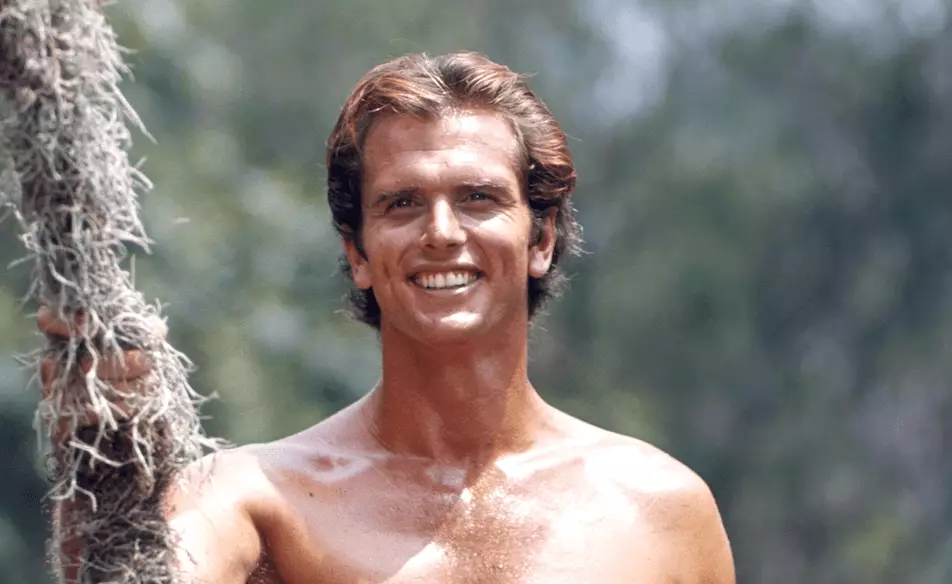Ron Ely, a charismatic figure synonymous with the iconic portrayal of Tarzan during the 1960s, has passed away at the age of 86. News of his death on September 29 came as his daughter, Kirsten, paid poignant tribute to her father, describing him as a “hero” not only in the eyes of the public but, most importantly, as her beloved dad. Ely’s life resonates far beyond the fame he acquired through acting; it embodies a rich tapestry of love, influence, and resilience that shaped not only his family but also all who encountered him.
Kirsten Ely took to social media to convey her grief and admiration, stating that her father created a “wave of positive influence” wherever he went. This sentiment captures a true essence of Ron Ely: he was much more than just an actor. As a writer, coach, mentor, and family man, he epitomized the multifaceted nature of success. Kirsten’s heartfelt words showcased her father’s emotional complexity—depicting him as strong yet nurturing, humorous, yet profound. Such reflections invite us to consider how personal relationships often shape our distillation of fame and identity.
The tribute reveals an intimate perspective of what it meant to share life with Ely. He was not merely a star basking in the glory of his achievements but a devoted family man who, through his actions, cultivated love and respect around him. The contrasting traits presented by Kirsten paint a picture of a man who successfully balanced the duality of being a public persona and a private mentor for his loved ones.
Ely’s career began humbly with supporting roles in various films before his majestic embodiment of Tarzan made him a household name. While some may have viewed his transition to stardom as a hallmark of triumph, Ely’s journey illustrates how perseverance and dedication entwined with his passion for acting. Stories abound of his commitment to authenticity; he performed stunts that tested his physical limits, experiencing broken shoulders and injuries, which reinforces his tenacity in an industry often characterized by superficiality.
Following his role as Tarzan, Ely sought to diversify his portfolio, embracing a range of projects from hosting game shows to appearing in various television series. This adaptability is a notable aspect of his persona that many in the industry could learn from. Instead of nudging against the confines of typecasting, Ely navigated his career with a blend of ambition and respect for the craft, which ultimately reflects the ethos of someone who understands the value of legacy.
The emotional weight carried by Kirsten in her tribute underscores the profound connections we maintain with our loved ones, particularly after their passing. Ely’s death, while a public loss, is deeply personal—not only for his family but for fans that grew up admiring him and taking inspiration from his performances. Kirsten eloquently expresses how she intends to honor her father’s memory while grappling with grief, highlighting her struggle to keep the essence of Ron Ely alive within her heart.
The emotional nuances of her words offer a glimpse into how loss can simultaneously shatter our world while igniting a desire for resilience. Her reflections speak directly to the human experience of loss, suggesting a journey of healing that relies on love and cherished memories as its foundation. Such transparency resonates broadly, reminding us that the bonds of family and love endure, even when confronted with death.
Ron Ely’s existence represented the dual nature of being both a star adored by many and a devoted father, husband, and friend. In celebrating his life, we acknowledge not just the roles that defined his career but also the values he embodied and imparted to those around him. His journey evokes reflections on legacy, love, and emotional resilience, all of which echo in Kirsten’s heartfelt tribute. As we remember Ron Ely, we remember a man who myriad lives touched for the better, transcending the boundary of mere fame to become a lasting influence in the hearts of many.
